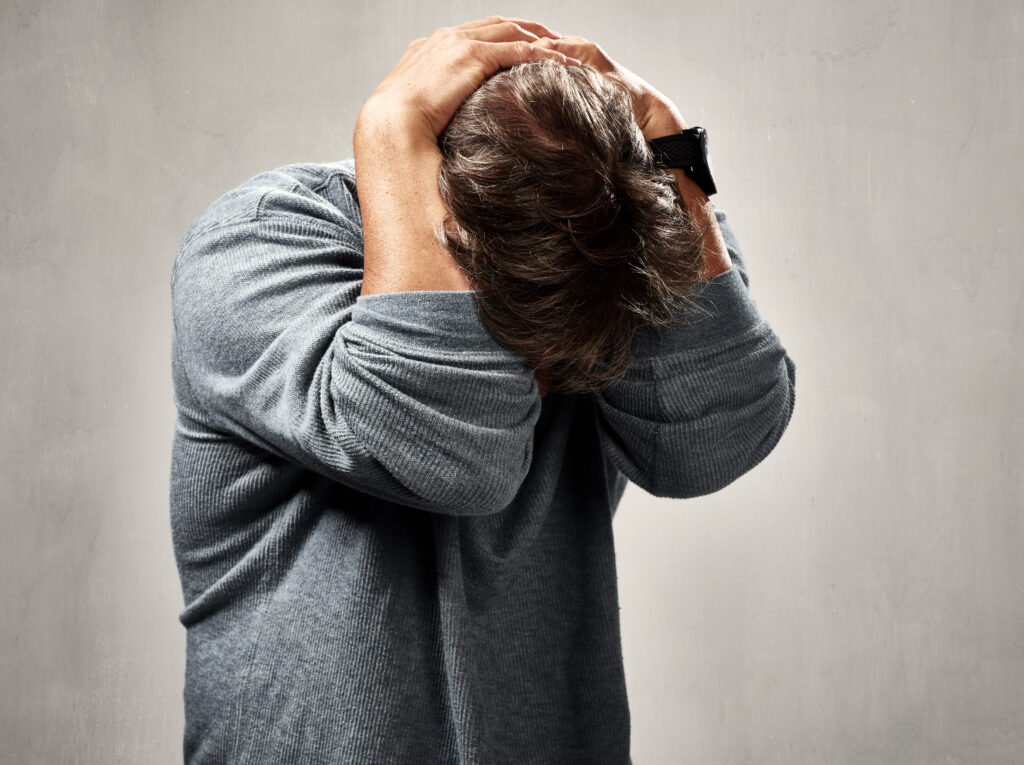Home » Dual Diagnosis Treatment » Depression and Addiction Treatment in Port St. Lucie, FL
Depression and Addiction Treatment in Port St. Lucie, FL
Embarking on the journey of addressing co-occurring depression and substance abuse requires a thoughtful approach, especially when considering treatment in a detox center in Port St. Lucie, Florida. Agape Detox Center aims to illuminate the intricate relationship between depression and substance abuse, emphasizing the unique challenges that arise when both conditions coexist. Together, we’ll explore the signs and symptoms of this dual diagnosis, recognizing the significance of seeking specialized care.
At our Florida detox center, we understand the complexities of co-occurring disorders and provide comprehensive addiction and mental health treatment. Call Agape Detox Center to learn more!
Table of Contents
ToggleWhat is Dual Diagnosis Treatment for Addiction and Depression?
Dual diagnosis treatment in Port St. Lucie, FL focuses on addressing simultaneous mental health and substance use disorders. For those with addiction and depression, it involves integrated care that treats both conditions simultaneously. This approach is critical, as the illnesses can influence and exacerbate each other. Treating one disorder while ignoring the other often leads to poorer outcomes.
Co-occurring depression and addiction is a widespread condition. Over half of those with substance use disorders also experience a mental health condition. For some, depression may lead to self-medication with drugs or alcohol. For others, using substances can activate or worsen depressive signs. Due to this interconnection, dual diagnosis programs are the most effective approach.
A dual diagnosis program employs a team of experts, such as psychiatrists, psychologists, addiction specialists, and counselors, to address both mental health and substance use issues, breaking the cycle of influence between depression and addiction. Successful treatment provides tools and support for lasting recovery, with the duration varying based on individual needs, ranging from weeks to months or longer. Factors like intervention effectiveness and individual response contribute to the duration, emphasizing a personalized approach for sustained recovery.
How is Dual Diagnosis Different from Treating Addiction or Depression Alone?
Treating dual diagnosis is different from treating addiction or depression alone because it involves addressing both conditions simultaneously.
Complexity of Diagnosis
Treating addiction or depression alone focuses on one specific issue. In dual diagnosis, there is a need to identify and address the interplay between both mental health disorders and substance use disorders.
Integrated Treatment Approach
Dual diagnosis treatment involves an integrated approach that considers both the mental health and substance use aspects. It is not simply the combination of separate treatments for each condition but a comprehensive strategy that addresses the interactions between them.
Addressing Root Causes
Dual diagnosis treatment aims to uncover and address the underlying causes and triggers for both the mental health disorder and the substance use disorder. This requires a more thorough assessment and understanding of the individual’s unique circumstances.
Risk of Relapse
Individuals with dual diagnosis may be at a higher risk of relapse if only one aspect of their condition is treated. For example, treating depression alone without addressing substance use disorder may lead to a return to substance abuse as a coping mechanism.
Coordinated Care
Dual diagnosis treatment often involves a team of professionals, including mental health professionals and addiction specialists, working together to provide coordinated care. This collaboration ensures that both conditions are considered in the treatment plan.
Individualized Treatment Plans
Dual diagnosis treatment recognizes the need for individualized plans that take into account the specific challenges and needs of each person. This may involve a combination of psychotherapy, medication management, and behavioral interventions tailored to address both disorders.
Long-Term Recovery Focus
The goal of dual diagnosis treatment is not just symptom management but achieving long-term recovery. This involves ongoing support from loved ones and friends, relapse prevention strategies, and a focus on improving overall well-being.
What are the Signs and Symptoms of Depression?

Depression manifests itself in several ways. Some of the most common signs and symptoms include:
- Feelings of Sadness or Hopelessness: Feeling sad, empty, or hopeless most of the time is a hallmark sign of depression. These feelings range from a mild sense of “the blues” to an all-consuming sadness.
- Loss of Interest in Activities You Once Enjoyed: Depressed individuals often lose interest in hobbies, socializing, and other activities that they used to enjoy. This can lead to social isolation and withdrawal.
- Changes in Appetite or Sleep: Depression can cause changes in appetite, sleep, or both. Some people experience increased appetite and oversleeping, while others experience loss of appetite and insomnia.
- Difficulty Concentrating or Making Decisions: Feeling indecisive or having trouble concentrating and thinking are common symptoms of depression. Even simple tasks can feel overwhelming.
- Feelings of Worthlessness or Excessive Guilt: Depressed individuals often struggle with feelings of worthlessness, self-loathing, and excessive guilt over perceived faults or mistakes. These feelings can be greatly exaggerated and disproportionate.
- Recurrent Thoughts of Death: Recurring thoughts of death or suicide are severe symptoms of depression that require immediate medical attention. If you or someone you know is experiencing suicidal thoughts, call emergency services right away.
What are the Types of Depression?
Depression is a complicated mental health issue that can appear in many ways. Below are several typical forms of depression:
Major Depressive Disorder
Major depressive disorder is characterized by persistent feelings of sadness, worthlessness, and loss of interest in activities. Individuals experience these symptoms for most of the day, nearly every day.
Dysthymia
Dysthymia is a persistent yet mild type of depression. Its symptoms resemble those of major depression but are not as intense. However, dysthymia causes significant problems in daily activities and relationships. Individuals often describe dysthymia as feeling “down in the dumps” and often persist for at least two years.
Seasonal Affective Disorder
Seasonal affective disorder (SAD) is characterized by symptoms of depression that occur during the winter when there are fewer hours of sunlight. Symptoms usually resolve once spring and summer return.
Bipolar Disorder (Manic-Depressive Illness)
Bipolar disorder is characterized by periods of intense mood swings, including episodes of mania or hypomania (elevated mood and energy), alternating with depressive episodes. Various forms of bipolar disorder exist, including bipolar I and bipolar II.
Psychotic Depression
This form of depression involves intense depressive symptoms along with psychotic features like hallucinations or delusions.
The types of depression can vary in severity and duration, but with proper treatment, individuals can effectively manage symptoms and improve their quality of life. Co-occurring depression and addiction treatment focuses on addressing both conditions simultaneously through psychotherapy, medication, lifestyle changes, and support groups.
Does Depression Come Before or After Drug Abuse?
The relationship between depression and drug abuse can vary, and there isn’t a one-size-fits-all answer. In some cases, depression may precede drug abuse, with individuals turning to substances as a way to cope with their emotional pain or to self-medicate. Alternatively, the misuse of substances can also contribute to the onset of depression.
While determining the chronological order in which addiction and depression develop, both conditions have common triggers, including factors such as:
- Genetic factors: A family history of either condition can increase the likelihood of an individual developing one or both of them.
- Environment: The environment in which a person grows up or lives can contribute to the development of addiction and depression. Factors such as trauma, stress, or exposure to substances may influence the onset of these conditions.
- Circumstance: Each person’s unique circumstances, experiences, and life events can contribute to the development of addiction or depression. Adverse events, such as loss, abuse, or significant life changes, can be triggers for both conditions.
- Brain chemistry: Both addiction and depression are associated with changes in brain chemistry. Substance abuse can alter neurotransmitter levels, contributing to mood disorders, while pre-existing imbalances may make individuals more susceptible to addiction.
Comprehensive Dual Diagnosis Treatment Programs for Depression and Addiction
Depression and addiction treatment programs typically involve comprehensive approaches aimed at addressing both conditions simultaneously, such as detoxification, inpatient and outpatient rehabilitation, various medications, and different forms of therapy.
Detoxification
Drug detox in Florida serves as the crucial initial step in treatment, concentrating on eliminating substances like drugs or alcohol from an individual’s system. This phase is conducted in specialized facilities or hospitals with medical supervision to safely manage withdrawal symptoms. The duration of detox varies, lasting from a few days to a week, contingent upon the specific substance and the individual’s response to withdrawal.
Inpatient or Outpatient Rehab
Inpatient rehabilitation offers a structured and immersive environment, providing round-the-clock care in a residential facility. This setting addresses addiction and concurrent mental health issues, offering benefits such as intensive therapy, peer support, and a break from external triggers.
On the other hand, outpatient rehabilitation allows individuals to live at home, attending therapy sessions during the day or evening. Suited for those with a stable home environment and less severe addiction issues, or as a step-down after inpatient rehab, it offers flexibility but requires a strong support system to prevent relapse.
Medications
Medications play a crucial role in treatment, addressing withdrawal symptoms, reducing cravings, and managing co-occurring mental health disorders like depression. Examples include methadone or buprenorphine for opioid addiction, naltrexone for alcohol dependence, and antidepressants for concurrent depression.
Therapeutic Approaches
Therapeutic approaches encompass various methods used in mental health and addiction treatment. These strategies aim to address and alleviate psychological challenges.
- Cognitive-Behavioral Therapy (CBT): Addresses negative thought patterns and behaviors associated with addiction and depression.
- Individual Counseling: One-on-one sessions with a therapist provide personalized support and address specific issues.
- Group Therapy: Involves sessions with peers facing similar challenges, fostering a sense of community and shared understanding.
- Family Therapy: Recognizes the role of the family in an individual’s recovery and works to improve communication and support.
Seek Assistance for Your Co-occurring Disorder at Agape Detox Center

If you find yourself grappling with depression, substance abuse, or both, don’t hesitate to seek help today. Recovery is not only achievable but also supported by a range of available depression and addiction treatments in Port St. Lucie. Reach out to us today, and take the first step toward a healthier and more fulfilling life.
Have any questions?

Stephanie Robilio is an accomplished Clinical Director at Agape Behavioral Healthcare. With a Master of Social Work degree, LCSW license, and extensive training in Rapid Resolution Therapy under her belt, she brings a wealth of expertise to her role. Her unique combination of education and experience allows her to provide exceptional care to clients and lead her team with confidence. Stephanie’s joy comes from witnessing the moments when her patients creatively connect the dots and bravely move toward reclaiming their power. Her purpose is to help individuals understand their past so they can create a future full of hope, growth, and success. Stephanie attributes a large portion of her success to the supportive culture and strong sense of community fostered by the Agape team.



